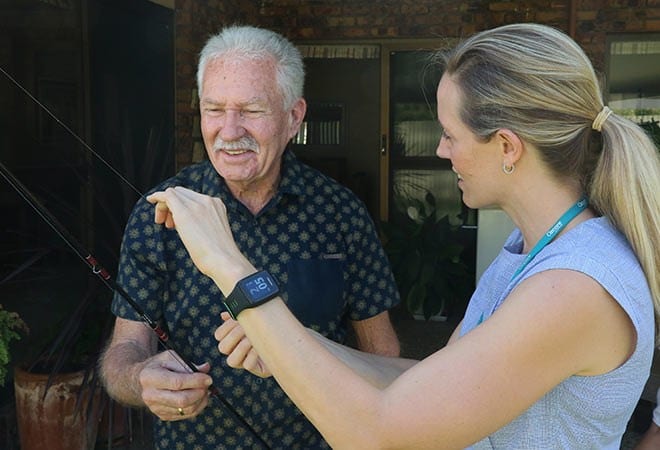These days a growing number of us seem to know someone who is living with dementia. Perhaps a close relative, or neighbour. The good part is that it means first-hand knowledge is growing about dementia. People are more aware of the illness now than ever.
And yet – as our dementia advisors pick up on every day – there is still an enormous need to get the word out about how to support people with dementia and their families.
Often, just in the course of going about their day, our dementia advisors will be asked a question ‘in theory’: perhaps about the person’s relative or friend, someone they don’t want to specifically refer on to Ozcare at this time – but whom they are very concerned about all the same.
By way of recent example: one of our team was going through the process of booking a local meeting room in order to run an information session on dementia, for the general public. The booking was straightforward and finalised – but the officer took the chance to ask a question of her own. She wanted advice about visiting her father, who lives with dementia, in a nursing home.
Even though she knew her father so well, the woman said she was struggling – just to make conversation with her father, to know where to start a conversation, to know how to fill the time. The visits were long, and quiet. She was coming to dread them, and found herself putting longer gaps between her visits. Did we have any advice on just simply having a chat with a person with dementia?
The good news is that we were able to talk to this woman about those struggles, while at the same time really encouraging her to value any and all communication she still has with her dad. For her dad, this sort of contact is critical. For someone in the earlier stages of dementia, it can be others’ fears of dementia which make communication difficult: “What should I say to her?” or “Will she still remember me?”. In fact generally people with dementia can still continue to interact well, especially if those around are supportive and aware of the person’s needs.
For someone with more advanced dementia, the communication may be different (say quieter) or brief, but it matters tremendously that we continue to reach out to every person with dementia, however minimal their communication. It may be a look in their eye, it may be a small expression of emotion, it may be an action that they keep doing (say opening a drawer) – but it is an act of communication, and that is vital for every human being.
Happily we were also able to forward on to this woman ‘Practical tips for conversation and social events’, one of our most popular resources. We hand this out often to people we are supporting, to people who attend our information sessions, to relatives who are struggling with this exact issue.
The booklet is one of several resources developed by the team, and you can access it on our website; see Information for carers. It covers some essential tips to promote good conversations with a person with dementia. Below we’ll share some of the main ideas from the booklet.
Getting a conversation going
Here’s a few suggestions of things to consider first. They can make a difference for us all in our communication, but particularly people living with dementia.
- check the environment: is a TV on in the background, making it hard to talk?
- try to get the person’s attention: do you have good eye contact? • be aware of your body language and tone of voice: use warm facial expressions, try not to show your frustration if the person is repeating themselves
- keep things simple: use short sentences, speak clearly and try not to ask questions that rely on having a good memory
- take your time: give the person time to think and speak, be careful not to interrupt, and don’t be too alarmed about times of silence
- consider using communication aids – say writing a note, or keeping a diary, as a way of helping conversations later
- use humour: it can help ease tension and promote good feelings
Take something to look at together
It can also be a good idea to take something with you to share or look at together – a book with colourful photographs, for example, a special ornament, or an article from a local newspaper. You could take a family photograph album and use this to prompt a good conversation.
Consider timing your visit to coincide with a particular program on television: a sporting event, say, if the person has always been interested in that sport, or a televised concert.
From time to time, involve others in the visit if you can – it can help to bring along other relatives and friends, who can help with the conversation and bring some new energy to the visit.
Be guided by the person
Follow the person’s lead: go with the flow of the conversation, and gauge the person’s interest by their reactions. If the person isn’t showing any interest, you may want to try something else.
Or if the person is showing interest, it may mean repeating this same activity in later visits. Don’t be afraid to go over the same ground, again and again if necessary, if this brings comfort and support to the person with dementia. What’s important is to focus on the feelings the person is sharing, not the facts – which may be confused by memory problems. Support is available Growing awareness of dementia is a great step forward – now the challenge is to spread the word about how best to support people to live well with dementia.
For more information on Ozcare’s Dementia Advisory and Support Service and the support it is able to offer, see ‘Specialist dementia advice’ on our website. The ‘Practical tips for conversation and social events’ booklet can also be downloaded for free.

